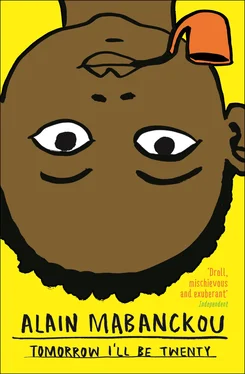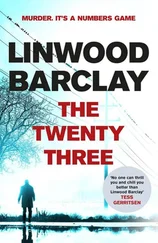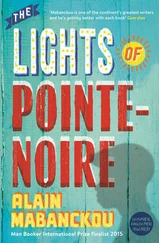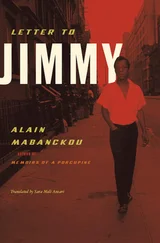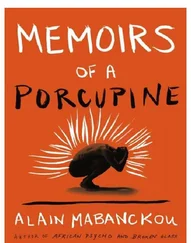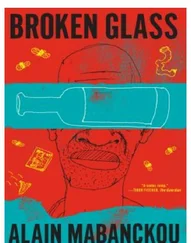Little Pepper stops speaking, and when he looks at me I know he’s wondering if I understand what he’s saying. But since he has told me not to interrupt, I keep quiet. I act like I’m in class and the teacher’s explaining something new. But I’d really like to say to Little Pepper: ‘Give me the key. I want to set everything straight today, and go to Egypt, and I’d like to grow up, too.’ But I mustn’t order him about because he’s a grown up, even if in his head everything’s bouncing around, like marbles bumping into each other, all those screws that have been loose ever since his uncle died. If I go on asking for the key, and don’t listen to him first, he’ll get really cross and then I’ll be going home empty-handed. Now, if I don’t get that key today, I’ll have to go and look through the bins again, tomorrow and the day after, and perhaps for the whole of the rest of my life, spend my whole life looking through the bins around here. I don’t want a life like that. So I listen to him. He has to stop some time.
‘But no, Michel, dear boy, now when I wandered down by the banks of the river Tchinouka, it was not for pleasure. It was the amnesia. I’d forget to stop at my own place, I’d carry on and on till I got to the river, convinced that I could walk on water, like Jesus. And when I tried to get across the river that runs through our quartier , even if I shouted three times over “ alea iacta est! ”, I’d still hesitate for a moment, because whatever it might look like, I don’t actually have the courage of a Roman general about to face up to Pompey the Great. Even when you lose your memory, there’s a red line you don’t step over. Amnesiac, yes. A living coward, yes. A dead hero, no. So I didn’t risk walking on the water, I hesitated, I told myself maybe it was too cold, or too polluted by the excrement of certain members of the local population who made out it didn’t matter if they did their business in the water, because world experts had proved that running water had no bacteria in it. My neighbour, Maloba Pamba-Pamba looked all over the quartier for me, to take me to a fetisher. Which was extremely decent of him. But he never got as far as the river, where I stayed for hours, wondering what I had come looking for in the dark hours of the night, braving the street dogs and the gangsters from the Grand-Marché, dividing their spoils and threatening each other with screwdrivers. I talked away to myself, I made wild gestures in the air, I laughed with the shadows of the night, with people all around me, and ended up scolding the frogs who were all yelling angrily at me. Amnesia also made me walk strangely. I’d wander off to the left, then to the right, I’d come back several times to the place where I’d started, but not recognise it. And since I was going round and round in circles, like a snail caught in his own slime, I had to find a way, some little thing, not too complicated, a little trick to stop me getting dizzy: I’d draw a cross of Lorraine to show where I’d already walked, so as not to come back the same way again a few minutes later. So suddenly, all the little streets in the Trois-Cents quartier , in Savon and Comapon were marked with dozens and dozens of crosses of Lorraine. Whenever I saw one on the ground I’d exclaim: “Aha! There’s a cross of Lorraine here! So I must have been past here already, I’d better go a different way where there aren’t any crosses of Lorraine!” And off I’d go somewhere else, but then some young jokers started drawing crosses of Lorraine all over the place. I’d find them in places where I’d never set foot in my life. I got more and more lost, because it really wasn’t easy to tell my crosses from those of the hoaxers, who had an undoubted gift for winding me up. So I stopped drawing crosses and spent my time instead rubbing them out, when I didn’t just stay at home cultivating my garden. At that point people decided I really was crazy and I went along with it. I forgot I had a house, I was convinced that the streets and the bins of this town belonged to me, that they were in fact where I lived. And since they were where I lived, I made my home in the streets and in the bins… That’s how I live now, outside, free, far from the wicked. What else can I do? Go round shouting that my last remaining shred of lucidity still outshines that of normal men? No, I’ve no time for that now, I’m exhausted, I’ve had it with all that. I like my life, I’m just going to sit and wait for my very last day, when I climb the stairway to heaven…’
He lifts his head and points up at the sky. I lift my head too, but I can’t see the stairway up to heaven. He lowers his head and then hands me the old key. I’m so excited, I snatch it from his hands.
As I get up to go he says, ‘Are you off for good then? Will I never see you again?’
I’m not listening though, I’m already running. I feel free, I can breathe deeply too. I feel like I can fly. I feel like I want to laugh like I’ve never laughed before. My feet hardly touch the ground. I think of Carl Lewis, and I run even faster.
I’ve already gone a long way, and I’ve even stopped thinking about the moment when I’ll hand my mother the key, when I suddenly remember that I’ve forgotten to ask Little Pepper two important things. So I turn back and I find him still in the same spot, with his head still bowed. He lifts it and smiles, and it’s as though he knew I would come back.
‘Ah, you’re back!’
‘There are two things I forgot to ask you…’
‘Then start with the first one.’
‘Have you still got the little key you found when we were looking through the bin together?’
‘Which little key?’
‘The tiny one that opens the cans of headless sardines from Morocco.’
He fumbles in the pocket of his old coat and gives me the little key.
‘What are you going to do with it, now I’ve given you a real one?’
Without thinking, I reply, ‘Maybe the little one is the right one. I’m going to keep them both, just in case.’
‘And what was the second thing you wanted to ask me?’
‘Have you seen My Sister Star and My Sister No-name?’
He stopped laughing then.
‘You didn’t give me their real names! I meet so many people, and if I don’t have their names I can’t tell who’s who, can I? Come back and see me any time, with your sisters’ real names.’
I run off again, without saying goodbye. I’m scared the night will grab hold of me, just as each ghost is settling back in its grave for a rest, after a long walk through the town.
As I run I hear the two keys knocking together in my shorts pocket. The noise soothes me. I feel light, I still feel like laughing, like I did just now. But if I laugh, people will think that I’m a mad child. How else will they understand that I’m happy and I’m talking to myself because what I have in my pocket is the key to my mother’s happiness, and my father’s. And mine too?
I can see a fat woman talking to our neighbour, Yeza the joiner. I peer at them, and make out Maman Pauline with them too, and Papa Roger and Monsieur and Madame Mutombo. When people are talking to Yeza it’s usually something to do with a coffin. Perhaps that’s why the fat woman’s crying and my mother and Madame Mutombo are comforting her.
As I’m now at our front door, I can’t quite see what’s going on. From this distance the faces seem blurred and when they talk it’s as though there are no words coming out of their mouths. It’s like those films in black and white that the priest sometimes shows us in the courtyard of the church of Saint-Jean-Bosco. There all you ever see is men, women and children on their knees praying.
I move forward into the middle of the lot and now I can see that the fat woman crying is the mother of Longombé, the apprentice. I recognise her, she’s the one who always comes to ask her son for money outside Monsieur Mutombo’s workshop. So I say to myself: ‘That’s it then, it must be Longombé the apprentice who’s dead’. And I start thinking about how it always made him laugh when I came to the workshop. How he would take my father’s trousers or my torn shirt and mend them. I’m not going to stay standing here in the middle of our lot. I want to know everything.
Читать дальше
